Features
Curriculum
The school uses diversified and inspiring games to build a balanced, integrated and spiral-styled curriculum. It focuses on the children, delivered through projects, stories, aesthetic education, whole-language instruction with matching games and project activities in a diversified, systematic and stimulating classroom environment. Subject to the different capabilities of the children, the curriculum adopts a balanced, integrated and spiral-styled learning approach with emphasis on the learning initiative of the children.
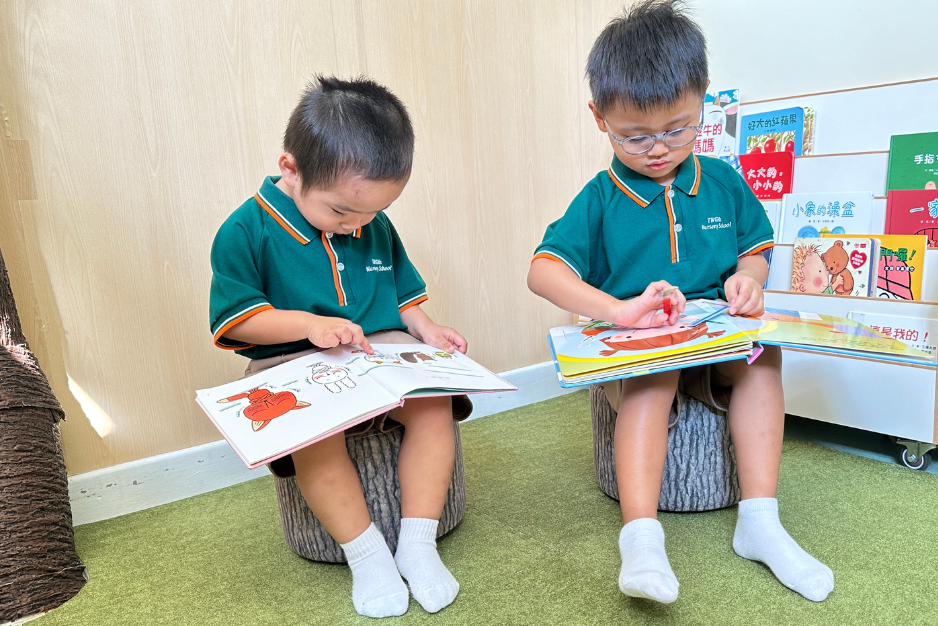
Whole-language Pedagogy
The school adopts the whole-language pedagogy with emphasis on 'natural', 'real' and 'complete' language context and environment. It respects children's learning autonomy and capabilities to allow them naturally develop their interest in language and words. Through different activities such as story teaching, news sharing, parent-child reading plan, role-play, food tasting etc., children will be placed in a meaningful context and environment for practical use of language, which fosters their listening, speaking, reading and writing interests and eventually enhances their language abilities.
Project Activity
We use diversified exploration activities to induce children's learning motives. 'Learning by doing' is the key and we let children actively participate in the activities – identify the problem, confirm the nature of the problem, suggest possible solutions, experiment and ultimately solve the problem. Let them 'take action', encourage them to continuously think and voice out their opinions, stimulate their learning interest and foster their active exploration and learning attitude, thus enhancing their expression abilities and self-confidence.
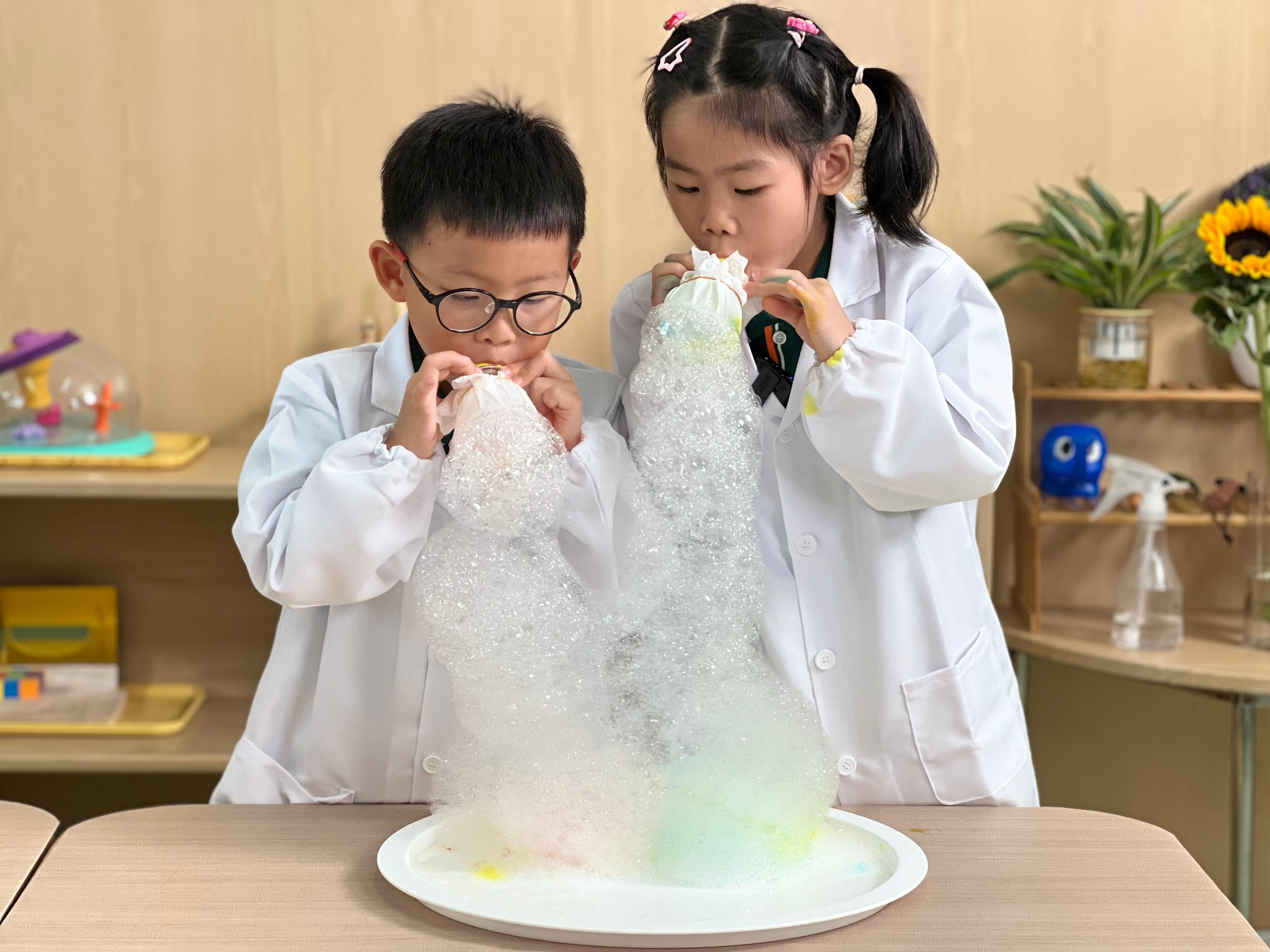
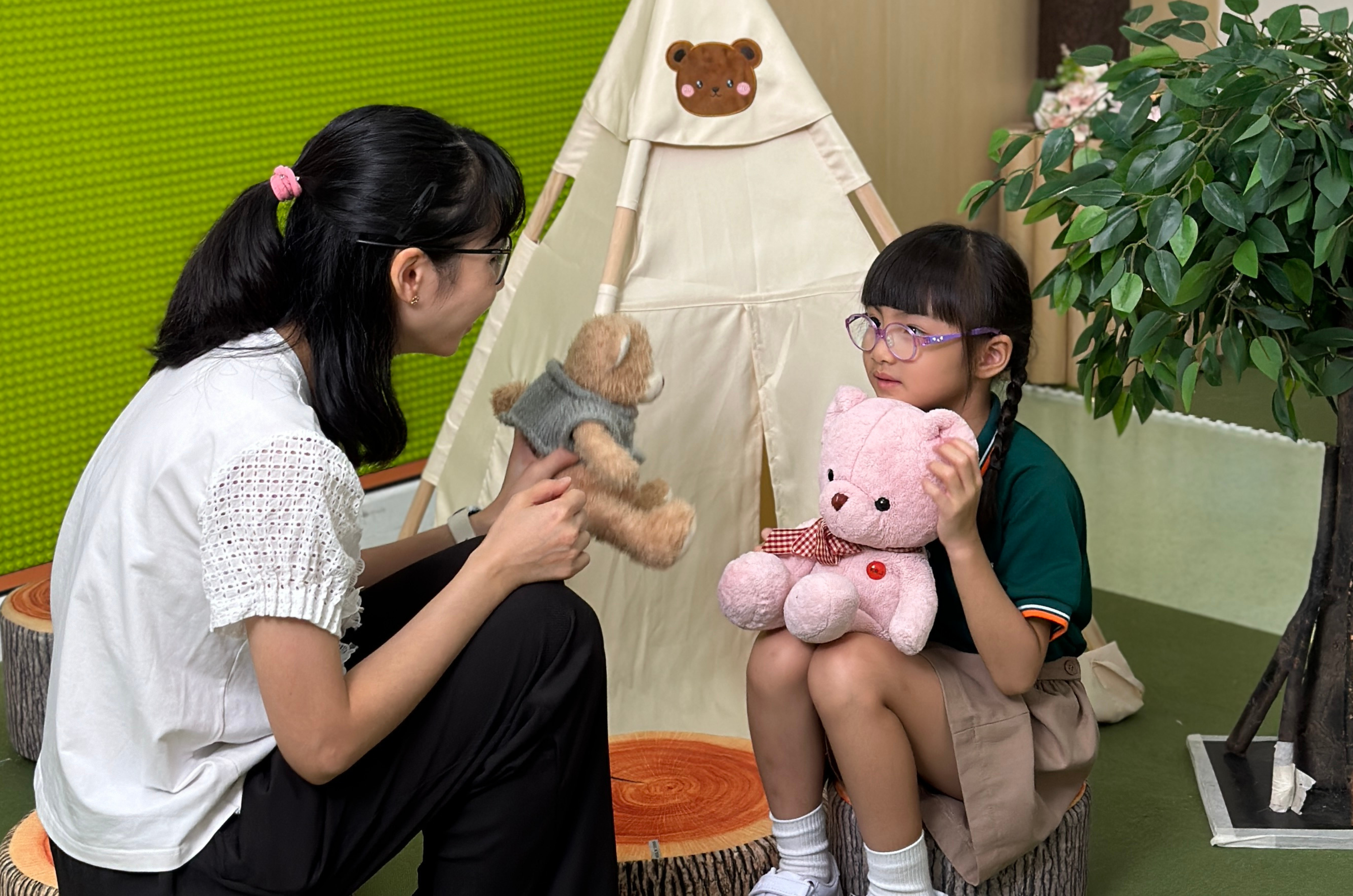
Emotion Education
The school cares about the social and emotional development of the children. Through a series of diversified activities such as emotional stories, emotion corner, role-play, songs etc., we help children to identify their emotions, express them properly, understand others’ feelings and solve problems, and to help children build stable and positive emotions.
Perceptual Motor Programme
The school pays attention to children's healthy brain development and perceptual motor training is included in the curriculum. The training allows children to learn the knowledge and skills of daily life through their five senses and arms and legs activities. Together with the 'Parent-child Perceptual Motor Training Homework', children are able to sharpen their sensory recognition abilities through games. This also helps cultivate positive emotions, improve concentration, develop motor control and establish foundational cognition and conception.
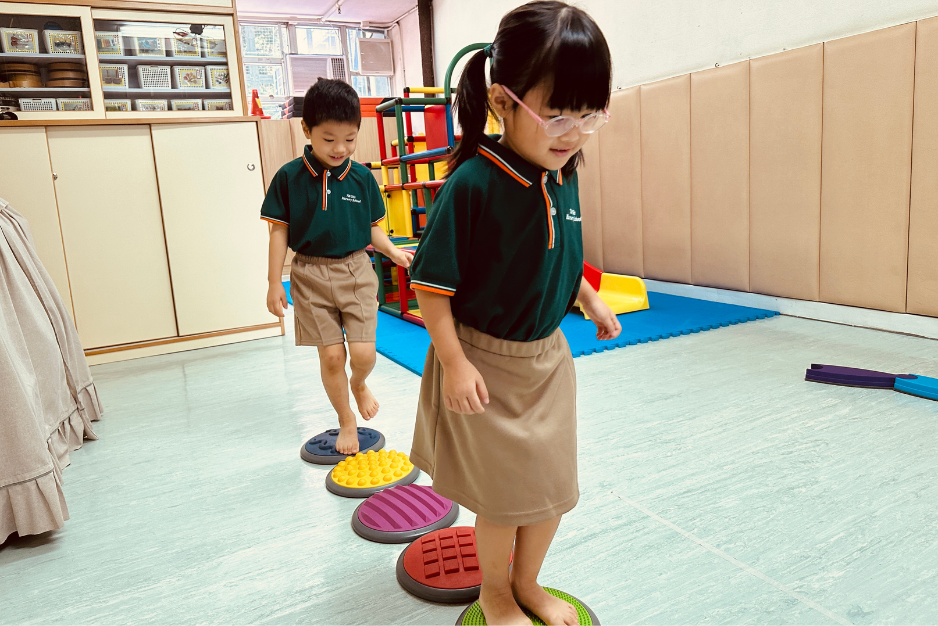
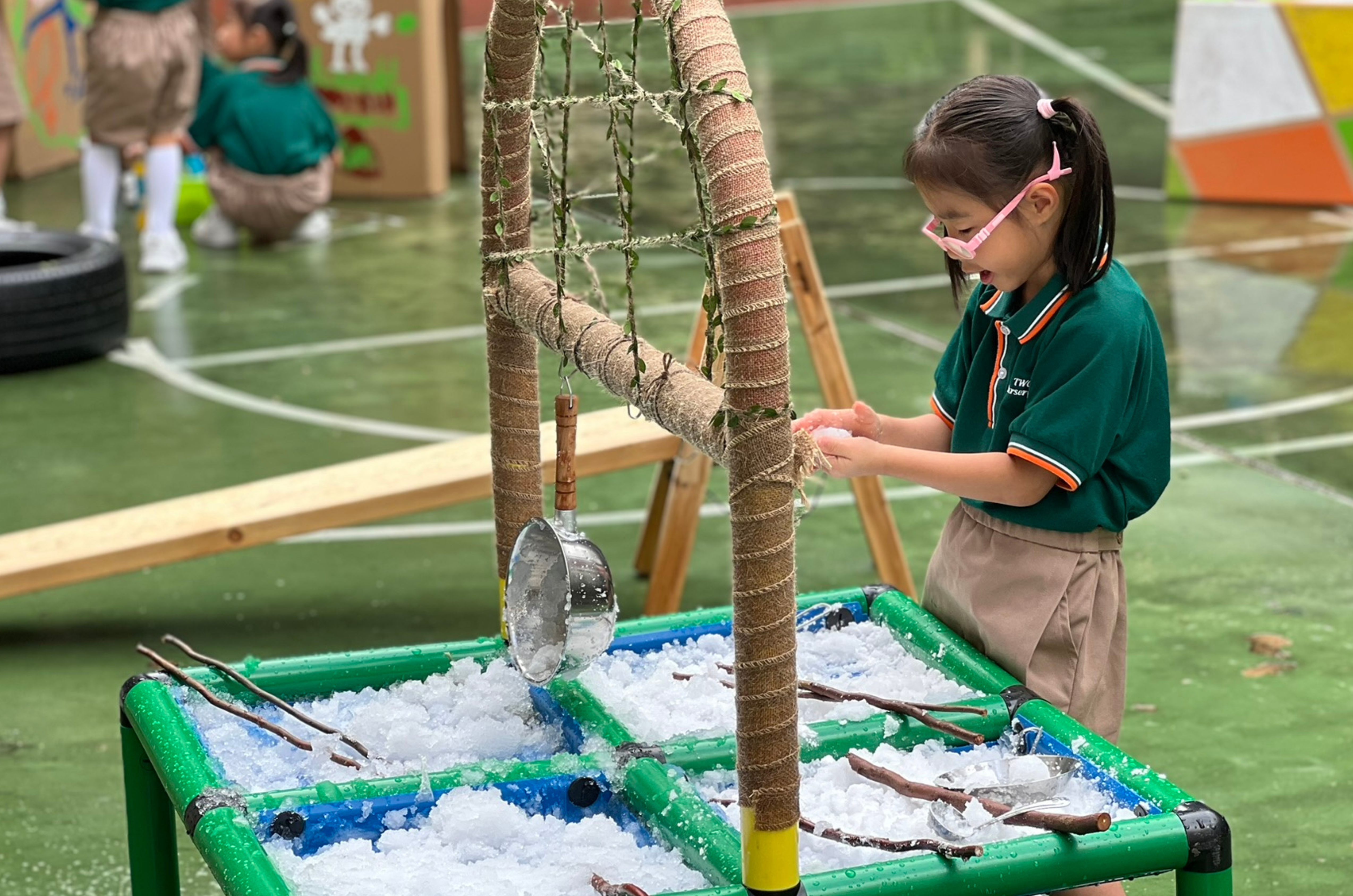
Free Play
"Free play" is a behavioral activity evoked by the intrinsic motivation of children. It places enphasis on children's autonomy and free participation and children are not limited bby the rules or preset goals established by adults. During free play, children can choose their own tools, ways to play, playmates and activity area.
Language Enrichment Programme
The school implements English and Putonghua enrichment programmes for students. Both programmes are taught by foreign teachers. Proper pronunciation and grammar are demonstrated to improve the effectiveness of children's language learning. The language enrichment programme provides different learning methods such as singing songs, playing games, telling stories to allow opportunities for children to 'listen' and 'speak', enabling them to learn in a happy environment.
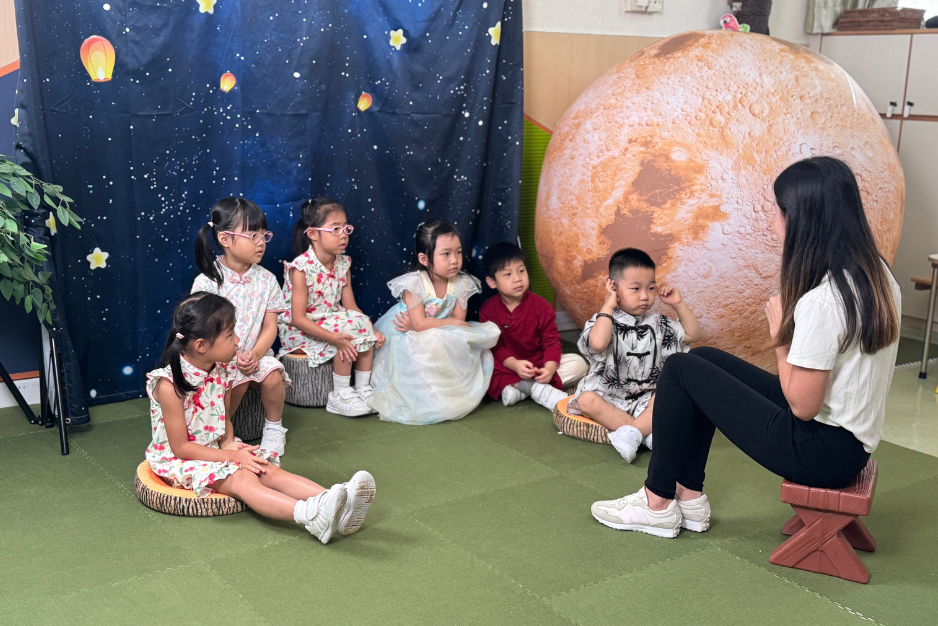
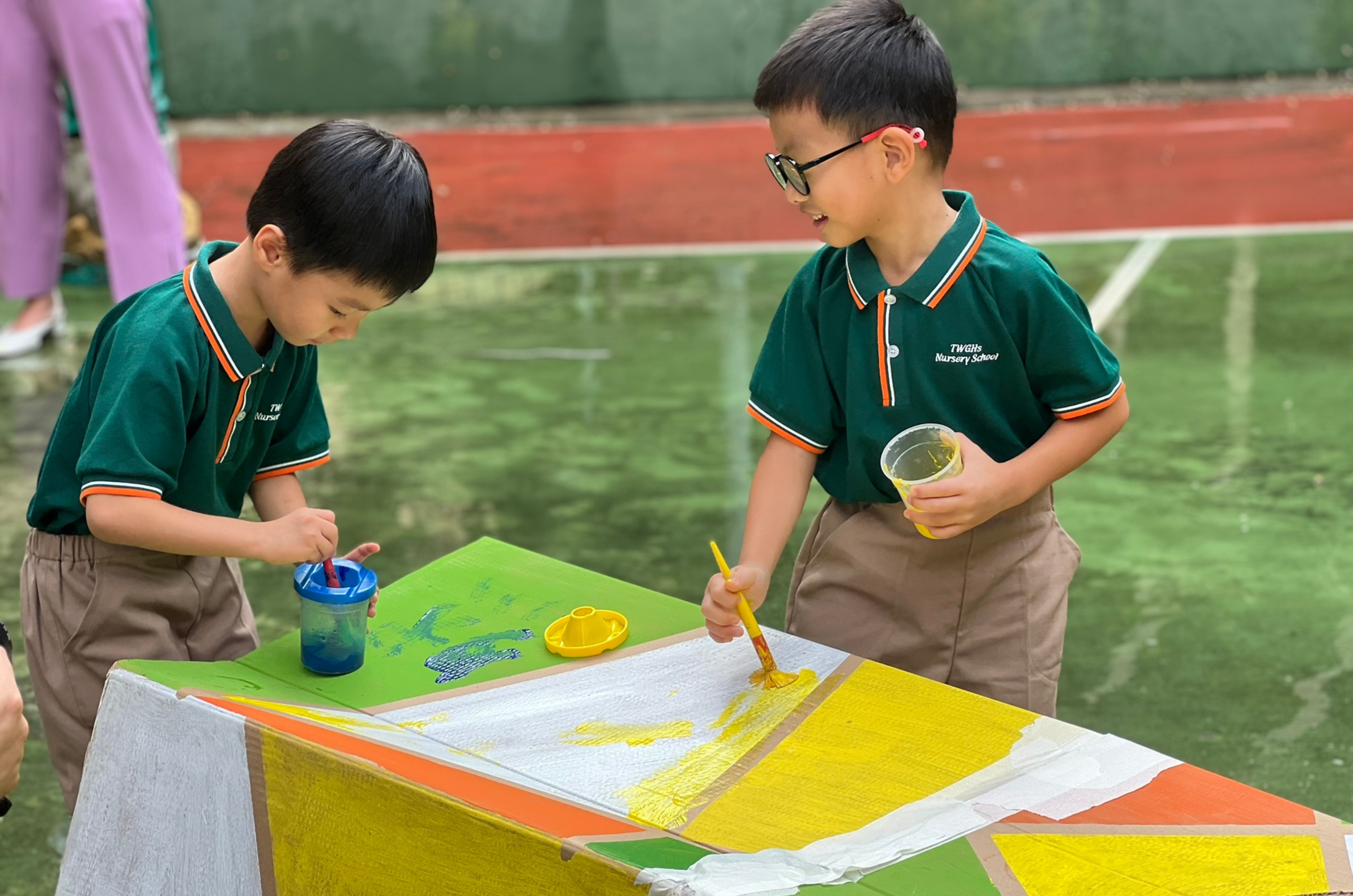
Pre-school Rehabilitation Services
The school provides the Integrated Programme for Mildly Disabled Children. The programme tailors for children aged 2-6 with special education needs who have yet to begin their primary education. They should apply through the central referral scheme of the Rehabilitation Service.
Special Early Childhood Practitioner will provide appropriate training and education plan for children with special educational needs, combining expertise with professionals in speech therapy, occupational therapy, physical therapy, clinical psychological service etc., enabling them to have a comprehensive development and fit in mainstream education and social life in the future.
On-site Pre-school Rehabilitation Services – Sunshine Kids is led by a team of cross-professionals including speech therapist, occupational therapist, physical therapist, senior special early childhood pratitioner, special early childhood pratitioner and social worker. They aim to provide all-rounded training, counselling and expert opinions for children with special care needs and their parents/caregivers.
Occasional Child Care Service
The school offers all-day, half-day or 2.5-hour sessions child care service in order to help parents with emergency situations or other needs.
Opening hours of Occasional Child Care Service
Service Time | |
| Monday to Friday | 8:00am to 6:00pm |
| Saturday | 8:00am to 1:00pm |
| Fee Schedule of the Occasional Child Care Service | |||
| First 2 hours | 4 hours / Half day | 6 hours | 8 hours |
| $16 | $32 | $48 | $64 |
| * Additional meal fee of $6.5 will be charged as lunch.* | |||
Extended Hours Service
The school provides extended hours service to accommodate the different needs of working parents and families.
Extended hours service usually opens from
Service Time | |
| Monday to Friday | 7:30am to 8:00am 6:00pm to 7:00pm |
| Saturday | 7:30am to 8:00am 1:00pm to 2:00pm |
| Fee Schedule of Extended Hours Service | ||||
| Service Hours | Fee | |||
| Time | Monday to Friday | Saturday | Daily Fee | |
| 1/2hour | 7:30am - 8:00am | $6.5 | ||
| 6:00pm - 6:30 pm | ||||
| 1hour | 6:00pm - 7:00pm | $13 | ||
| 1:00pm - 2:00pm | ||||
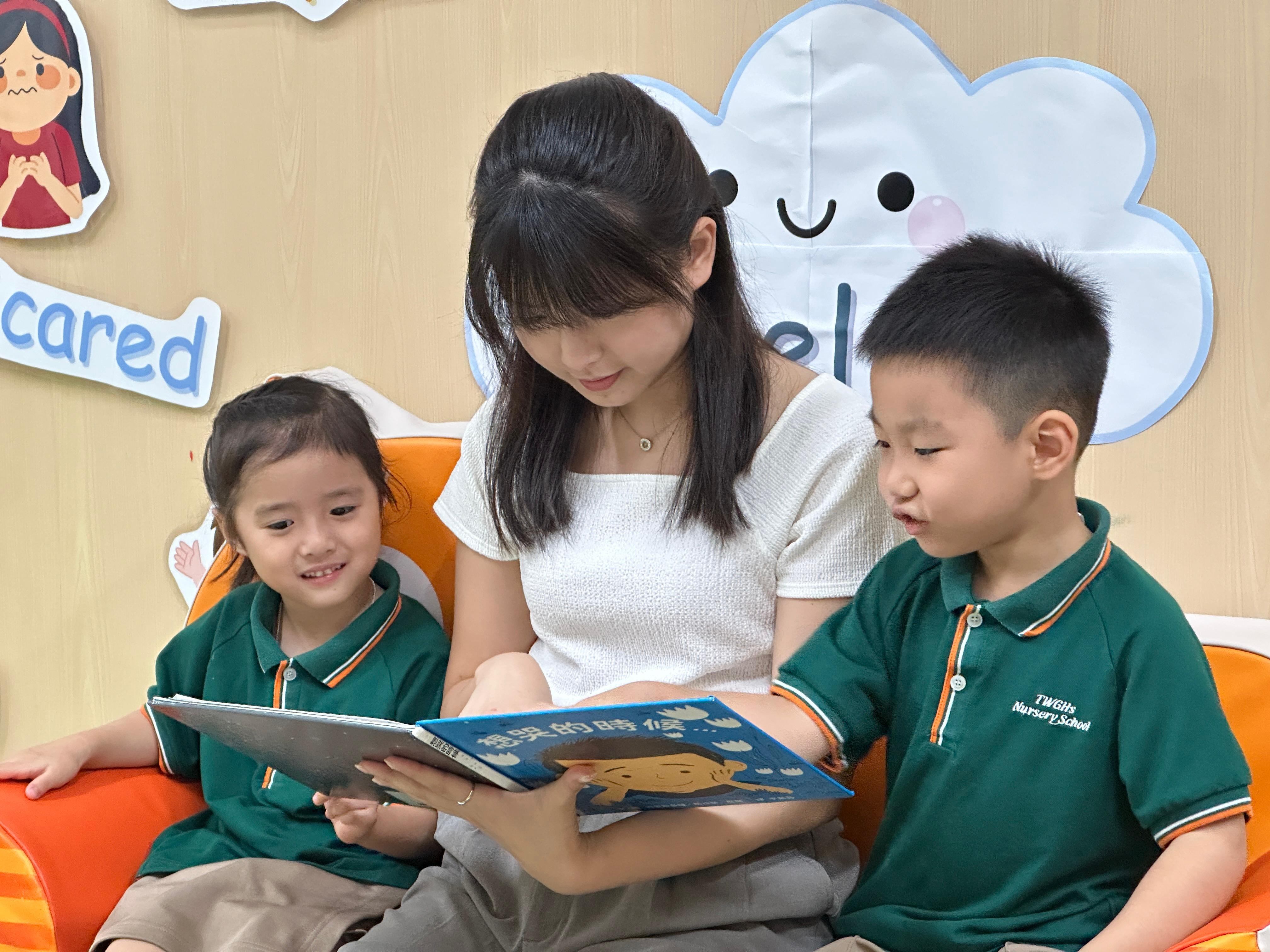
School-based Social Work Service
We offer school-based social work service to provide professional advice and counselling for parents who need help in nurturing their children, family issues or emotional support, for healthy mental and physical growth of the children. The service also identifies children with learning difficulties in behavioral, social or emotional development, helping them to solve their personal problems and take every learning opportunity to develop their potential. The school-based social worker will also organize different seminars and workshops to let parents have a better understanding of child development and thus become more capable in nurturing their children.